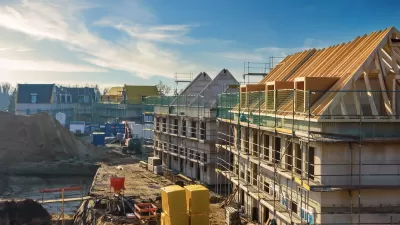The non-profit group Nuestras Raíces in Holyoke, Mass. has found urban agriculture a powerful community glue, providing increased food security and economic opportunity to the Puerto Rican population there.
"Though it is in the bucolic Pioneer Valley, Holyoke, among the state's poorest cities, is notorious for its drug use and attendant crime. As in many picturesque New England river cities with impressive Romanesque Revival buildings, mills made it rich and then dealt it a decisive blow when labor costs shut them down. In Holyoke... The farm jobs dried up about the same time the mills closed, and unemployment rates have remained high. But the knowledge and love of farming have stayed strong in the Puerto Rican community, which accounts for nearly 40 percent of the city's population."
"Holyoke was thus fertile ground for "urban agriculture"-the successor to the still-flourishing community-garden movement, which itself grew out of World War II victory gardens. In the late 1960s, in the wake of urban renewal's wholesale razing, community gardens cleaned up blighted lots, curbed vandalism, and gave people who had never had one a say in how their neighborhoods were run. Today, according to the American Community Gardening Association, there are more than 17,000 community gardens all over the country. The urban-agriculture movement looks for ways people can make money on what they grow (seldom a focus of community gardens) and puts an emphasis on training youth to strengthen their communities. And it gives people access to fresh vegetables in "food deserts" where the only oases are gas stations and convenience stores."
"To keep the garden and the alliances around it alive, community members founded Nuestras Raíces in 1992. One garden has grown to nine, and the annual budget is now more than $800,000."
FULL STORY: A Papaya Grows in Holyoke

Alabama: Trump Terminates Settlements for Black Communities Harmed By Raw Sewage
Trump deemed the landmark civil rights agreement “illegal DEI and environmental justice policy.”

Planetizen Federal Action Tracker
A weekly monitor of how Trump’s orders and actions are impacting planners and planning in America.

How Atlanta Built 7,000 Housing Units in 3 Years
The city’s comprehensive, neighborhood-focused housing strategy focuses on identifying properties and land that can be repurposed for housing and encouraging development in underserved neighborhoods.

In Both Crashes and Crime, Public Transportation is Far Safer than Driving
Contrary to popular assumptions, public transportation has far lower crash and crime rates than automobile travel. For safer communities, improve and encourage transit travel.

Report: Zoning Reforms Should Complement Nashville’s Ambitious Transit Plan
Without reform, restrictive zoning codes will limit the impact of the city’s planned transit expansion and could exclude some of the residents who depend on transit the most.

Judge Orders Release of Frozen IRA, IIJA Funding
The decision is a victory for environmental groups who charged that freezing funds for critical infrastructure and disaster response programs caused “real and irreparable harm” to communities.
Urban Design for Planners 1: Software Tools
This six-course series explores essential urban design concepts using open source software and equips planners with the tools they need to participate fully in the urban design process.
Planning for Universal Design
Learn the tools for implementing Universal Design in planning regulations.
Jessamine County Fiscal Court
Caltrans
Institute for Housing and Urban Development Studies (IHS)
City of Grandview
Harvard GSD Executive Education
Toledo-Lucas County Plan Commissions
Salt Lake City
NYU Wagner Graduate School of Public Service





























